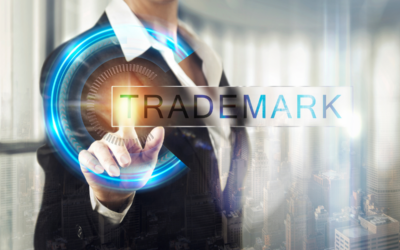What are Non-Fungible Tokens
Non Fungible Tokens (NFT) are all the rage in the crypto world. For those of you who are unaware of what a NFT is, a NFT is a non-interchangeable unit of data stored on a blockchain, a form of digital ledger, that can be sold and traded as a digital asset. Unlike traditional currency, cryptocurrency and other digital payment tokens, where interchangeability is a key characteristic, a NFT creates value due to its non-interchangeable nature. To purchase a NFT, you need to open a crypto ‘wallet’, buy a cryptocurrency, then use that cryptocurrency such as Bitcoin, Etherium or a Crocoin to purchase the NFT.
A NFT is characterised by the following elements:
- Uniqueness: a NFT represents a unique object, whether digital or otherwise, which may be associated unequivocally with a user or to a virtual wallet;
- Indivisibility: cannot be split up into parts; and
- Non-fungibility: it is non-replicable.
Common examples of NFTs include:
- Art: artists are selling drawings, paintings or sketches as NFTs;
- Memes: famous memes have been sold as NFTs;
- Music: musicians have sold songs and soundtracks as NFTs; and
- Videos: highlights of sports games have been turned into NFTs and bought by fans.
Creators of NFTs are able to guarantee themselves as the original creators of a NFT by ‘minting’ their NFT on the blockchain and being recorded in the public register as the owner. The minting process involves the creation of code on the blockchain network which creates a unique ID to the digital asset. Essentially, anyone with access to a blockchain has the capability to mint a new NFT.
With the value being attached to NFTs reaching astronomical heights, we have provided those that ‘play’ the crypto market with a summary of the legal implications attached to the purchase and sale of NFTs, with a particular focus on intellectual property issues.
Are NFTs regulated in Australia?
The short answer is no – NFTs are not directly addressed in Australian legislation or case law.
Currently, most NFTs are sold subject to a standard smart contract. The smart contract enables a transfer to occur automatically and operates as a binding legal contract. At the seller’s discretion, a sale of a NFT can be accompanied by a contract for sale, deed of copyright assignment or deed of copyright licence, which expressly set out how copyright or other matters are dealt with in the transaction. Presumably, if you are a purchaser in the valuable sale of a NFT, a formal, written agreement would govern the transaction and clearly stipulate how certain matters, particularly those raised below, are dealt with.
Current Legal Issues
Ownership
Any consumer when purchasing an item seeks direct legal ownership and full legal title. With respect to NFTs, there is a distinction between ownership of the NFT as a unique token and ownership of the content or asset that the NFT may be associated with. When purchasing a NFT, you are not given a proprietary right to every copy or version of the underlying work, but rather a unique version of that work.
Rights of Use
Depending on the contractual arrangements that regulate the sale of the NFT, NFT purchasers may also be precluded from altering, or using for their own commercial interests, the NFTs that they purchase. An example of this is seen in the NBA’s ‘Top Shot’ marketplace where the NBA, without their prior written consent, preclude purchasers from altering the footage or selling merchandise in connection with the purchased NFT. Should these terms be breached, the NBA has the right to remove the NFT that you have purchased from its app without notice.
Copyright
Furthermore, acquiring NFTs representing a work in which copyright subsists does not grant the new owner of the NFT copyright in the underlying work. An example of this is the NFTs sold by lead vocalist of the band Linkin Park, Mike Shinoda, who sells NFTs under the following terms:
“Only limited personal non-commercial use and resale rights in the NFT are granted and you have no right to license, commercially exploit, reproduce, distribute, prepare derivative works, publically perform, or publically display the NFT or the music or the artwork therein. All copyright and other rights are reserved and not granted.”
Even where the terms of a NFT contract purport to assign copyright to the purchaser, the terms must comply with the requirements for an assignment under copyright legislation (see section 196 of the Copyright Act 1968 (Cth)).
In addition to creators selling their NFTs subject to strict conditions on copyright, the minting and sale of NFTs is susceptible to infringement of copyright where a person mints and sells a copy of a work that is in the public domain. By minting the work, the seller is falsely claiming to own copyright in the underlying asset as an original work. Such conduct is especially problematic in relation to NFTs due to the anonymity features of the blockchain, which make it difficult to verify who is the rightful creator or owner of copyright in the underlying work of a NFT.
Given it is quite easy to ‘mint’ and sell a NFT, a creator may appear in the NFT market as the appropriate person to offer NFTs in relation to a work. However, in practice this person may not be the owner of these rights or have the ability to licence them based on contractual arrangements that are in place outside of the blockchain. This point has already led to litigation in the US, where Miramax (a Hollywood Studio) brought claims of breach of contract, copyright and trade mark infringement against Quentin Tarentino (a Director) following his sale of NFTs based on scanned images of his original handwritten script for the 1994 film “Pulp Fiction.” Naturally, this dispute highlights the need for content industries to ensure that their standard contractual arrangements clearly deal with the potentially valuable rights associated with NFTs.
What should you be doing?
NFT creators can add value and avoid disputes by:
- ensuring that they own the copyright in the work being minted;
- providing a special high resolution file that is uniquely accessible to the NFT owner only, and securing that file to minimise the risk of unauthorised digital copies becoming available;
- associating a copyright licence with the NFT specifying the rights that the purchaser will obtain in the work. This can be achieved as part of the terms and conditions of the NFT trading platform;
- revisiting existing or preparing new IP agreements and templates, to determine if and how they apply to NFTs; and
- ensuring that proposed new deal structures properly take into account the nuances of Copyright Law.
For those purchasing NFTs, be aware that:
- unless the terms and conditions state otherwise, purchasing a NFT does not give you a proprietary right to every copy or version of the underlying work;
- in some circumstances, you may be prevented from altering, or using for your own commercial interests, the NFTs that you purchase; and
- in order for you to actually own the underlying IP rights of a NFT, you would need to obtain an assignment from the creator or owner of the work that is the subject of the NFT.
Despite the lack of legal clarity around the above issues, the volume and value of NFT sales continue to soar. Both sellers and buyers owe it to themselves to better understand the deals they are entering into and how to better protect themselves and at ClarkeKann, our Intellectual Property Team are here to assist you with any issues or concerns that you have with respect to the purchase and sale of NFTs.
For further information, please contact Jimmy Gill on 02 8235 1239 or Royce Tout on 02 8235 1243.



